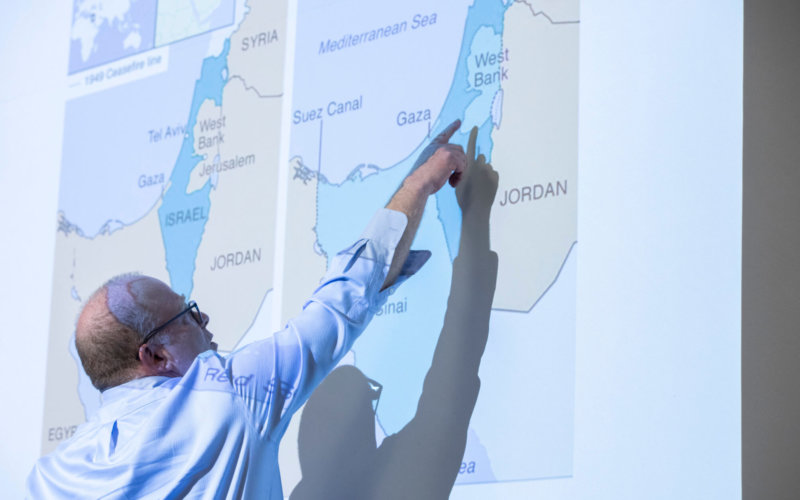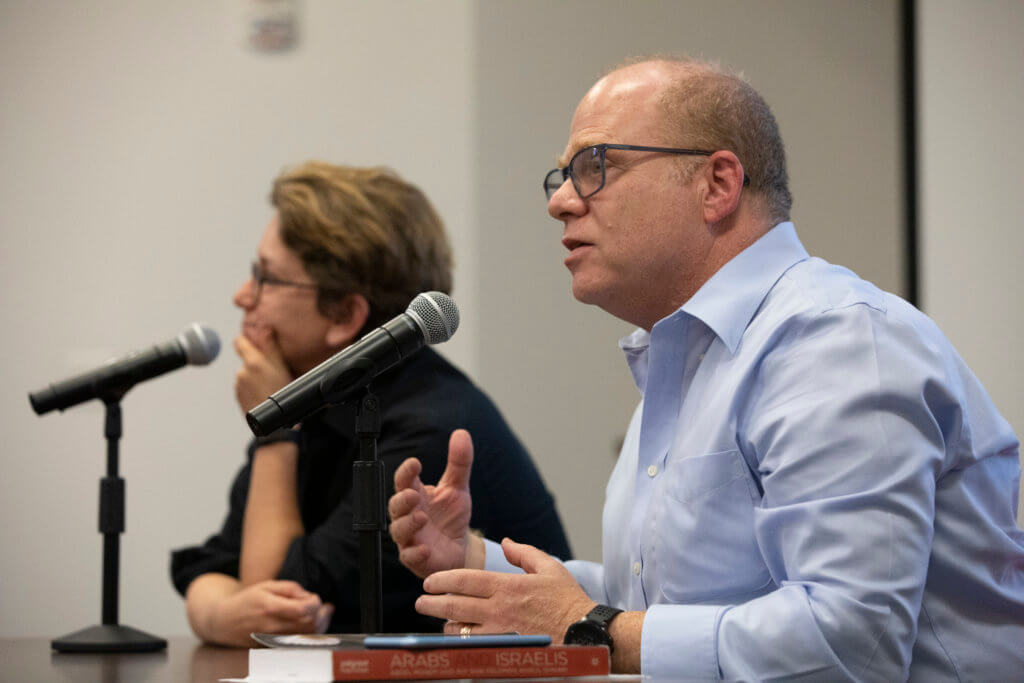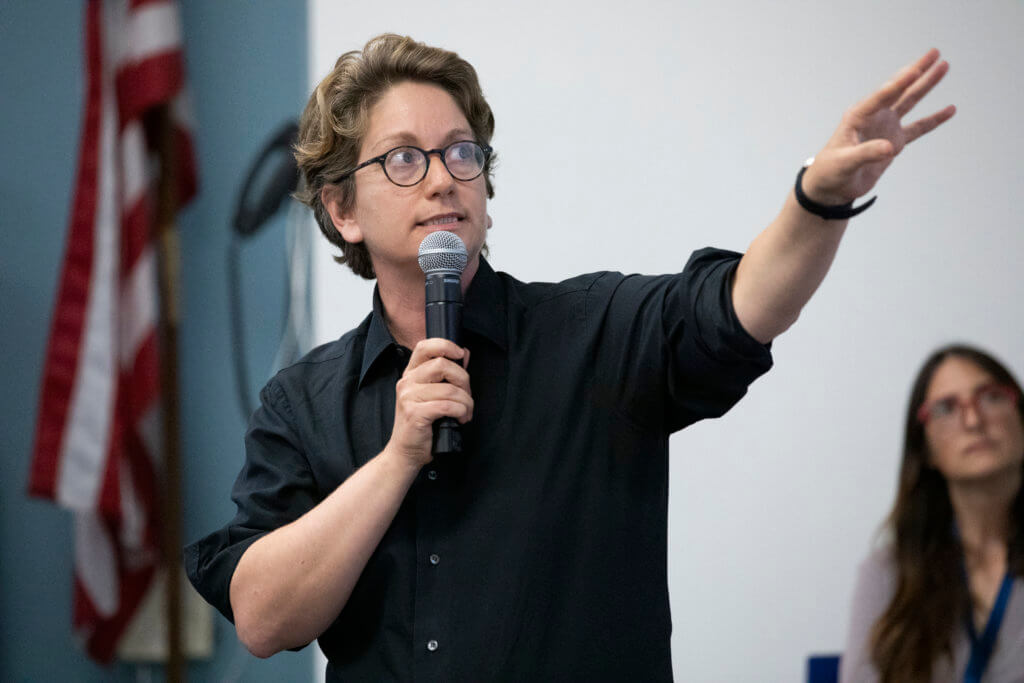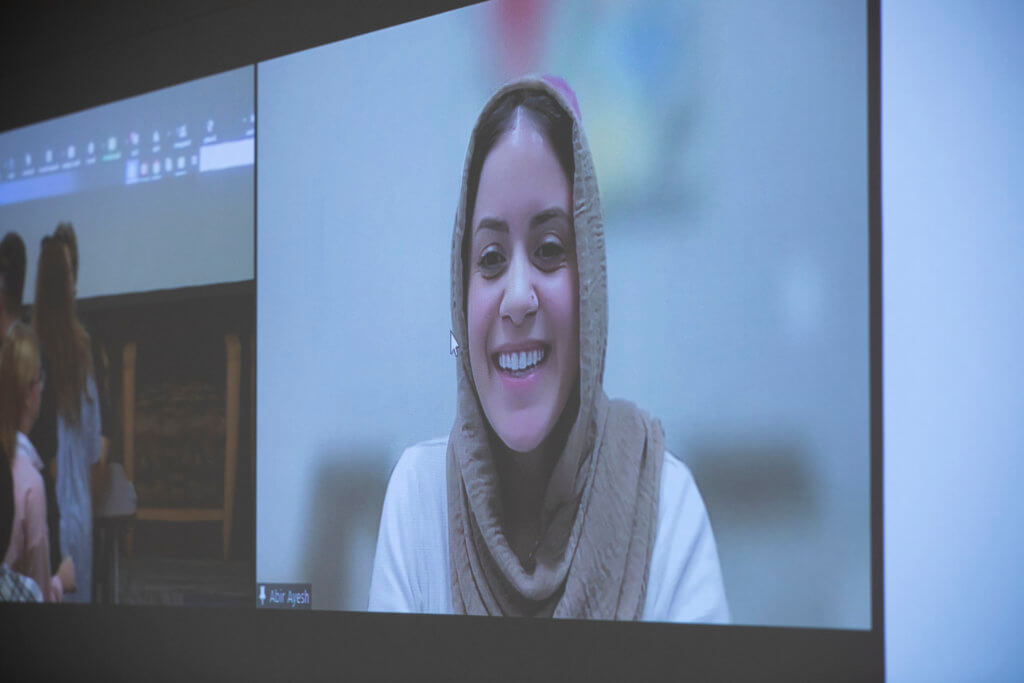
During an Oct. 23 panel discussion hosted by Cal State Fullerton’s College of Humanities and Social Sciences, researchers offered academic perspectives on the Israeli-Palestinian conflict.
Scott Spitzer, associate professor of political science who teaches a course on The Politics of the Arab-Israeli Conflict, opened the discussion by providing political, historical and social context.
“I want students to understand the complexities and the widespread disagreements among the chief protagonists in this intense 100 years plus conflict,” said Spitzer. “The conflicts have been there even before the current Israel-Hamas war.

“The current situation is not just about war and death and destruction, which I am horrified by, but it’s also about change,” he continued. “We’re in the middle of changes in the Middle East that are going to be incredibly long lasting and affect your generation and generations thereafter.”
Jessica Yirush Stern, associate dean of student relations in the College of Humanities and Social Sciences, said that the purpose of the panel was to create an open dialogue and to teach students how to think critically about complex situations.
“We believe in the college that it’s our responsibility to help the campus community use the humanities and social sciences to understand events that are facing them,” said Stern. “I found it encouraging to see all of the people who attended the panel to listen to our scholars as we try to make sense of this current moment.”

Ella Ben Hagai, associate professor of psychology, shared her research, “Living the Dissonance and the Ethics of Multiple Truths: American Jews in Israel.” Ben Hagai, who teaches courses in social psychology, critical multicultural psychology and intergroup conflict and reconciliation, explained the importance of understanding and being able to hold multiple perspectives on the conflict.
In her research, she studied a service-learning program in which American Jewish people travel to Israel for a year to teach English to both Palestinian and Jewish people. Interviewing participants in the program, Ben Hagai wanted to understand how “being there” shapes the way people understand Israel and the Israeli-Palestinian conflict.
“The interesting thing is that they didn’t stay inside a binary story on the conflict because they were working with all sorts of populations,” said Ben Hagai. “They find themselves having empathy for people of both sides and understanding the reality of their pain. They’re seeing that it’s not just two narratives, but it’s much more complicated.”
Ben Hagai said that many participants showed signs of experiencing cognitive dissonance, which is a mental conflict that occurs when people are introduced to narratives, actions or beliefs that are contradictory to their own perspectives.
“The cognitive dissonance that holding multiple truths causes is not enjoyable, but it leads to the development of a new identity that really takes the ethics of multiple truths seriously,” said Ben Hagai.

Graduate psychology student Abir Ayesh presented her research, “Everyday Palestinian Resistance, Resilience and Recovery When Faced With Violent Occupation,” in which she evaluated how Palestinian people make meaning of their trauma, how they cope with traumatic experiences and how they exhibit resiliency.
Using a clinical psychology approach, Ayesh spent two years interviewing 20 people over the age of 18 who were of Palestinian descent and had lived under Israeli occupation in Palestine at some point in their lives.
“I chose to study this topic because I wanted to better understand how I could treat clients with these backgrounds. Their trauma is ongoing and it’s collective,” said Ayesh, an aspiring clinician. “By becoming more culturally competent and taking into account their collective experiences, we can learn how to recommend coping skills.”
Her findings showed that many participants experienced collective trauma, meaning they defined their trauma in relation to their community and others’ experiences.
“The shared suffering experienced by Palestinians creates a culture of mutual support and community that provides a safe space for people to share their painful accounts,” said Ayesh. “This is trauma bonding that produces a sense of safety for them.”
Ayesh added that some participants coped with their experiences by getting involved in politics and educating others. “The participants all talked about the empowerment of just existing,” she said.
The panel discussion was followed by a candlelight vigil in the Quad to honor the lives lost in the current Israel-Hamas war.